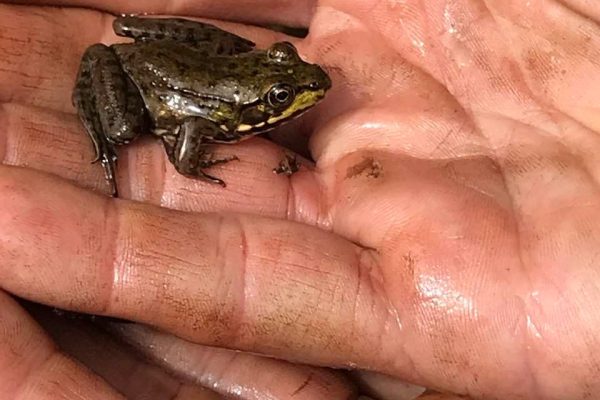Chapter 1
1. And these are the names of the sons of Israel, who came to Egypt, with Jacob, every man with his household. 2. Reuben, Simeon, Levi, and Judah, 3. Issachar, Zebulun, and Benjamin, 4. Dan, and Naphtali, Gad, and Asher. 5. And all the souls who came from the loins of Jacob were seventy souls; for Joseph was in Egypt already. 6. And Joseph died, and all his brothers, and all that generation. 7. And the people of Israel were fruitful, and increased abundantly, and multiplied, and became exceedingly mighty; and the land was filled with them.
8. And there arose up a new king over Egypt, who knew not Joseph. 9. And he said to his people, Behold, the people of the children of Israel are more and mightier than we; 10. Come on, let us deal wisely with them; lest they multiply, and it may come to pass, that, when there would be any war, they should join our enemies, and fight against us; and so get them out of the land. 11. Therefore they did set over them taskmasters to afflict them with their burdens. And they built for Pharaoh treasure cities, Pithom and Raamses. 12. But the more they afflicted them, the more they multiplied and grew. And they were mortified because of the people of Israel. 13. And the Egyptians made the people of Israel serve with rigor; 14. And they made their lives bitter with hard slavery, in mortar, and in brick, and in all kinds of service in the field; all their service, which they made them serve, was with rigor.
15. And the king of Egypt spoke to the Hebrew midwives, and the name of one was Shiphrah, and the name of the other Puah; 16. And he said, When you do the office of a midwife to the Hebrew women, and see them upon the stools; if it is a son, then you shall kill him; but if it is a daughter, then she shall live. 17. But the midwives feared God, and did not as the king of Egypt commanded them, but saved the male children alive. 18. And the king of Egypt called for the midwives, and said to them, Why have you done this thing, and have saved the male children alive? 19. And the midwives said to Pharaoh, Because the Hebrew women are not as the Egyptian women; for they are lively, and deliver before the midwives come to them. 20. Therefore God dealt well with the midwives; and the people multiplied, and became very mighty. 21. And it came to pass, because the midwives feared God, that he made them houses. 22. And Pharaoh charged all his people, saying, Every son who is born you shall throw into the river, and every daughter you shall let live.
Chapter 2
1. And there went a man of the house of Levi, and took for his wife a daughter of Levi. 2. And the woman conceived, and bore a son; and when she saw that he was a handsome child, she hid him three months. 3. And when she could no longer hide him, she took for him an ark made of reeds, and daubed it with slime and with pitch, and put the child in it; and she laid it in the rushes by the river’s brink. 4. And his sister stood far away, to see what would be done to him. 5. And the daughter of Pharaoh came down to wash herself at the river; and her maidens walked along by the river’s side; and when she saw the ark among the reeds, she sent her maid to fetch it. 6. And when she had opened it, she saw the child; and, behold, the baby wept. And she had compassion on him, and said, This is one of the Hebrews’ children. 7. Then said this sister to Pharaoh’s daughter, Shall I go and call for you a nurse of the Hebrew women, that she may nurse the child for you? 8. And Pharaoh’s daughter said to her, Go. And the girl went and called the child’s mother. 9. And Pharaoh’s daughter said to her, Take this child away, and nurse it for me, and I will give you your wages. And the woman took the child, and nursed it. 10. And the child grew, and she brought him to Pharaoh’s daughter, and he became her son. And she called his name Moses; and she said, Because I drew him out of the water.










